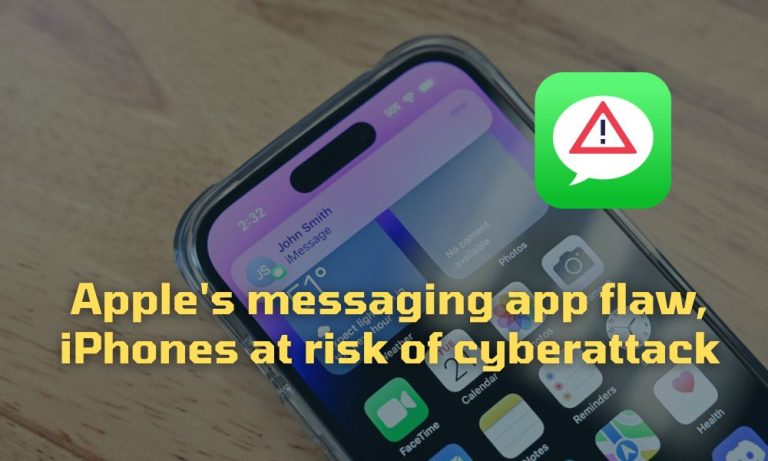User Privacy and Data Security: Finally, as in this digital scenario, it is vital to maintain user privacy and data security. Apple has long placed this at a premium, employing encryption for messaging in its iMessage app. While the discovery exposes a security hole in iMessage, the default app comes pre-installed on iOS devices.
This weakness has opened the door for cyber-attackers to send malicious false messages with harmful links to iPhone users. When a link is clicked, malware enters the device, Bleeping Computer reported. Therefore, iPhone users are at severe risk of cyberattacks.
How the Vulnerability Works
The weakness in iMessage’s security is elaborate and difficult to spot. Hackers exploit this vulnerability to circumvent Apple’s strong phishing prevention features. They send messages with legitimate links, but when the user clicks on them, the links install malware on the user’s iPhone.
This malware can:
- Take control of the device remotely.
- Gather sensitive personal and financial data.
- Monitor user activities.
- Harvest passwords for apps and services.
- Cybersecurity
- What Apple Is Doing
Apple has an impressive track record of quickly patching security problems. The company has not issued a public statement specific to this vulnerability, though it has likely begun working on a security update to mend the flaw. Regular updates are essential since they usually contain fixes for newly discovered vulnerabilities.
How Users Can Safeguard Themselves
Until Apple fixes the issue, iPhone users can take proactive measures to protect their devices.
Update iOS: It also helps to have your iPhone running the latest version of iOS since updates frequently contain security enhancements. Be cautious about messages from unfamiliar senders or organizations, especially if they contain links.
Check the Source: If a message seems fishy, contact the sender directly to verify its authenticity.
Turn on Additional Security: For added security, turn on two-factor authentication (2FA) for your Apple ID and other key accounts.
Install Security Software: Use trusted security software to help you monitor your device.
Update Your Privacy Settings: Make sure to periodically review your privacy settings so you can restrict app permissions and data access.
The Bigger Picture: Threats to mobile security are on the rise
This incident underscores the increasing sophistication of cyberattacks aimed at mobile devices. Smartphones now sit at the centre of everyday life, storing everything from banking information to personal messages. With attackers’ increased sophistication and ability to exploit known vulnerabilities, users must stay updated on what threats could affect their systems.
Final Thoughts
Apple’s iMessage is a popular and proven platform, but every system has weaknesses. The responsibility to maintain good cybersecurity practices in using the Internet is now more than ever underlined.
With appropriate mitigation and awareness of security updates, iPhone users can lower their odds of being a target of such attacks. In the meantime, all eyes are on Apple to come up with a quick fix to this serious problem.


